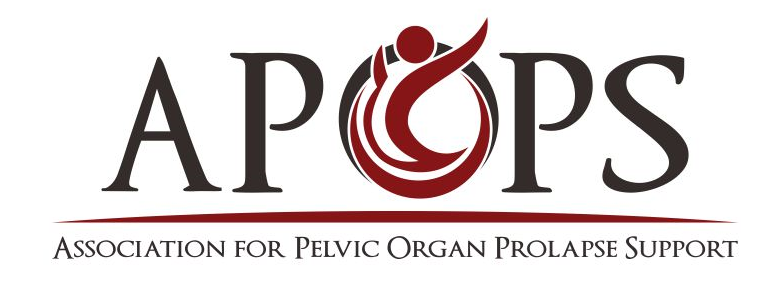



The textbook definition of caregiving is the act of providing unpaid assistance and support to family members or acquaintances navigating physical, emotional, or lifestyle needs. At the most basic level, caregiving is simply helping those we care about. It comes from the heart, without need for an acknowledgement or thank you. November is National Caregivers Month, and it seems so appropriate to pass along a thank you to the millions of people who do the good stuff, and shine a light on aspects of caregiving that many people take for granted. Women with pelvic organ prolapse are some of those caregivers.
Caregiving can go on for years without a breather. Caregivers frequently delay their own health treatment. Caregivers often split their time between their own homes and the homes of those they care for. Some caregivers are sandwiched between caring for parents, their children, and their significant others. Caregivers become masters of multi-tasking simply because they feel compelled to do the right stuff for everyone they love.
Caregiving often comes in our mature years, when our bodies are a little more tired and our brains a little less crisp. There is a need to raise the profile of caregivers navigating health conditions that have significant physical, emotional, and social impact, such as pelvic organ prolapse (POP). Menopause is the second leading cause of POP (childbirth is number one). There is zero doubt that many women caregivers navigating care for their parents are also living with pelvic organ prolapse (POP). Half the female population is estimated to experience POP, likely the most common, least recognized women’s health concern. Discovery upon diagnosis is widespread, and women often suffer for years with undiagnosed symptoms they don’t understand.
How are women able to care for others when they have great physical pain as sometimes occurs with POP? How are women able to address the social isolation of those they care for when they can barely tolerate leaving their own homes for fear of an incontinence episode in public? How are women supposed to address the heavy lifting that often comes with caregiving when they are told by their clinicians that they should avoid heavy lifting at all costs? A recent study by Dr. Kavita Mishra et al, Caregiving Among Women with Pelvic Organ Prolapse, indicates that 30% of women seeking treatment for POP are caregivers.[1] Caregiving becomes complex without a doubt when health concerns muddy the waters.
When advocacy agencies like AARP bang the drum to raise the profile for Caregivers, they sow seeds of change. As a recipient of the AARP Caregiver Portrait of Care, I am one of the fortunate people to receive acknowledgement. “Providing care for loved ones is a difficult enough task. When you are also attempting to navigate health concerns of your own, as well as health issues of the person you are providing care for, the job can become overwhelming – even if it is a labor of love,” said AARP Wisconsin Communications Director Jim Flaherty. “The work Sherrie is doing to provide support for women who are dealing with pelvic organ prolapse while also trying to multi-task and find a workable balance in their lives between work, family support and health is incredible. She serves as an inspiration to all of us.”
But the true value of awards or acknowledgments is the platform they provide to raise the profile of a cause. Caregivers matter. They always have. They always will. I applaud AARP’s efforts to address the needs of their community with a continual watchful eye on policy evolution. And I applaud the caregivers in APOPS community, strong women addressing the needs of others as they address their personal health journey.
[1] Mishra K, Raker C, Sung V. Caregiving Among Women with Pelvic Organ Prolapse: Prevalence, Treatment Choice, and Burden. http://epostersonline.s3.amazonaws.com/augs2015/augs2015.04100dc.NORMAL.pdf

